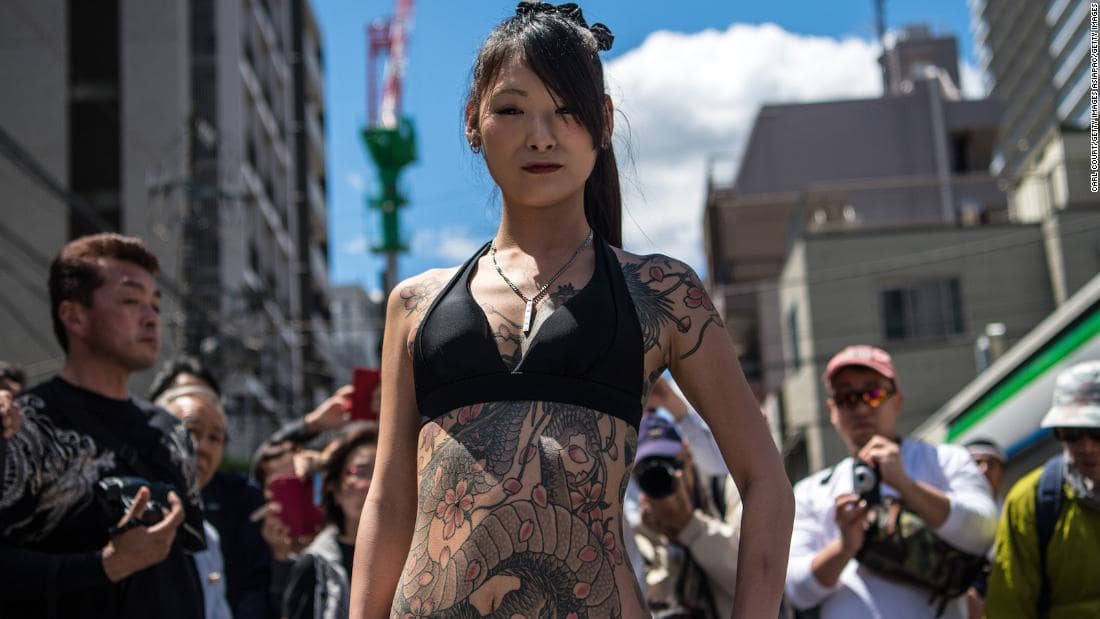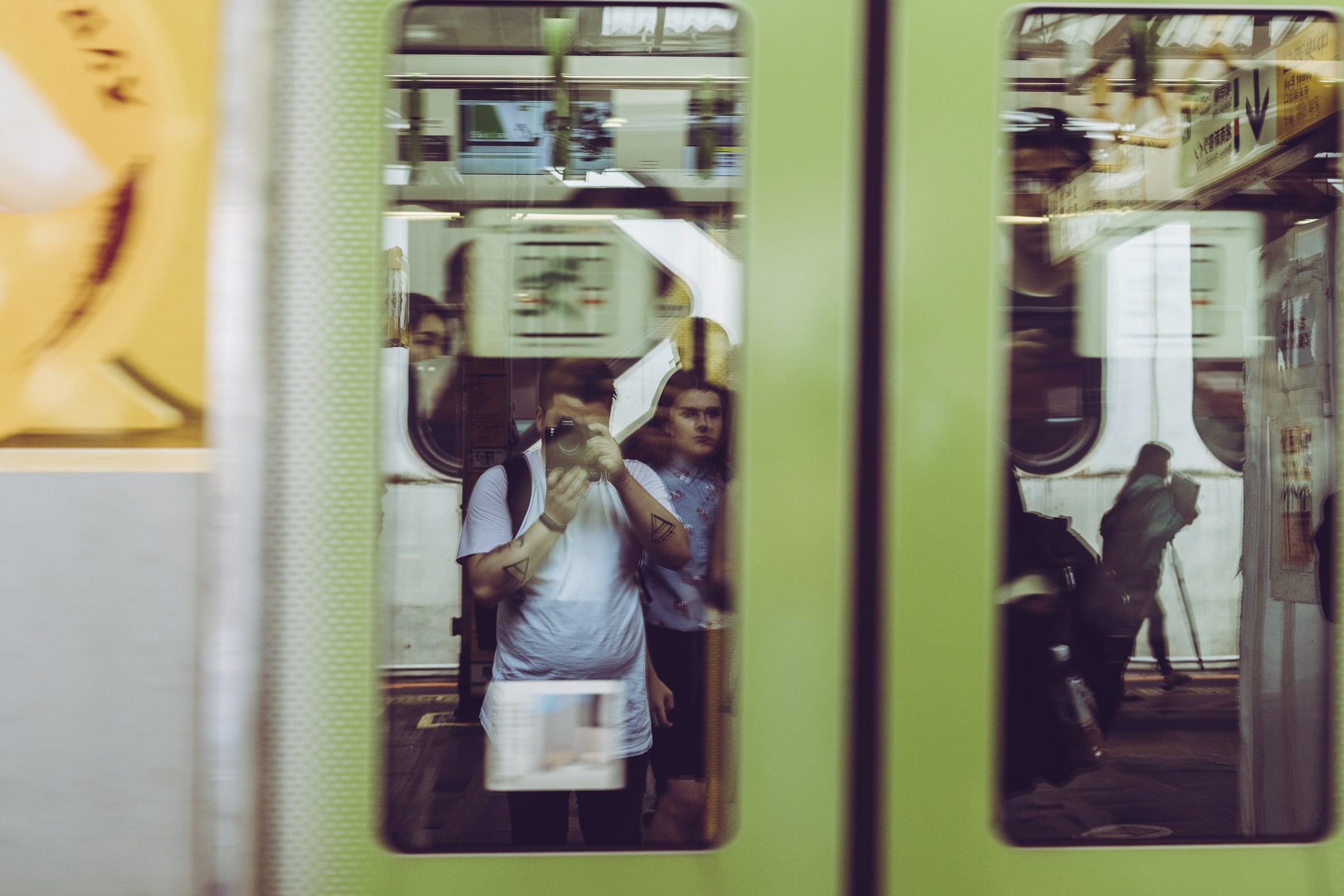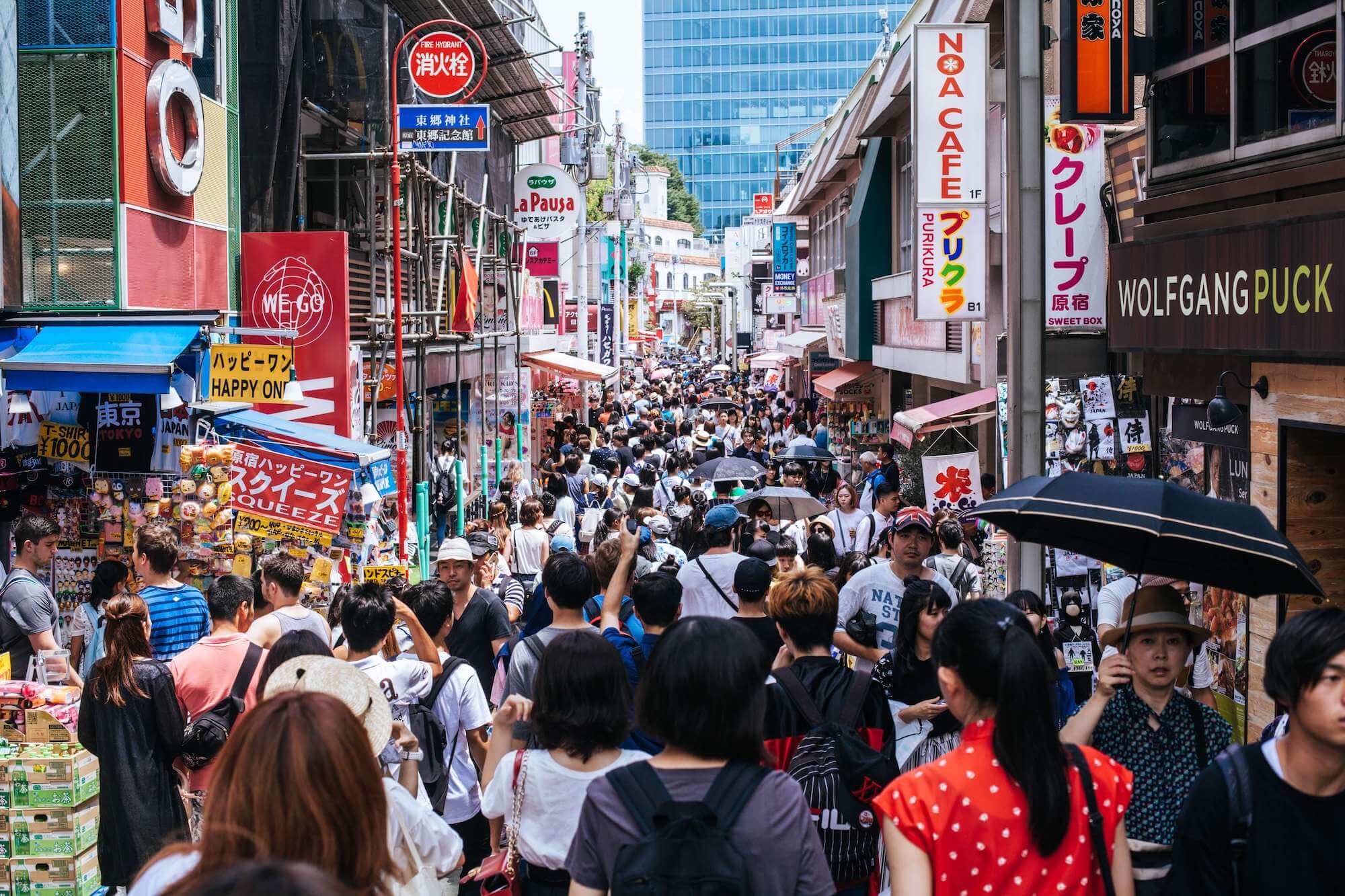Travel Japan with Tattoos – Tattoos and tattooing exist in some way in practically every part of the world. It is not only a form of art and expression, but for some it is part of their culture. In Japan, it is quite known that the Japanese do not look favourably to and at tattoos. This dominant, anti-tattoo view as well as their fraught history with regards to tattooing greatly affects people with tattoos on their travels to and in Japan.
Not only do tattooed travellers (and residents) get side eyes and stares, things get highly complicated for them in certain situations. A number of public facilities like the pool, onsens and gym, as well as traditional environments like a ryokan, do not grant entry to people who have them. While there have been progress with regards to Japan ’s view on tattoos in recent years, it hasn’t progressed as fast as we would like it to.
Table of Contents
Are Tattoos Illegal in Japan?

Image credit: CNN
A rather common question following the topic of tattoo disapproval in Japan is whether or not it is actually straight up illegal. The answer is no, tattoos are not illegal at all. In fact, there is even a traditional Japanese tattooing style called Irezumi, which dates back many centuries. It has then been a source of inspiration and influence for the West and modern tattoo culture. Anyone who’s devoted to the art and history of tattoos would know that tattoos and tattooing has deep roots in the ancient Japanese culture.
The Japanese Perception of Tattoos

Image credit: Lucas Lenzi
Regardless of the substantial historical evidence of tattoo culture in ancient Japanese culture, there has long been a standing link between tattoos and illegal activities which has been difficult to change. The automatic judgement of one being classified as a “bad guy” when he’s seen with a tattoo has been occurring throughout the country for a while.
Yet, some Japanese do have their own tattoos. Many of them just keep it well hidden and covered, as exposing and revealing them is rather rare in Japan due to social reasons and the need for employment. These prevailing rules and social norms in Japan has had various rebellions, but it seems unlikely that there will be any drastic change any time in the near future. But the need of body art acceptance and appreciation in Japan can be felt in the air. You need to have access to legitimate tattoo ideas websites if you want to get a tattoo with a Japanese theme. A VPN can be used as a website unblocker. This is how you can add personality and distinction to your tattoo!
The Ban of Tattoos at Bathing Facilities

Image credit: Changi Recommends
While it is still tolerated to expose body art in places where one normally expects it to be — in subways, public streets and most restaurants — some very specific places implemented a strict ban against tattoos. For example, almost all bathing facilities, like the onsen, and public facilities, like a public spa, gym and swimming pool, forbid entry to anyone who is seen with tattoos on their body. There is no one exact reason as to why, but some believe it’s to prevent contamination of the waters and consideration for other users. There are others who believe that it’s to keep out the Yakuzas from onsens.
Due to the increase of tourism, especially from the West, Japan has seen more and more people with body art roaming their streets, and eventually demanding access to their facilities. As a temporary answer to this, there have been special facilities that are just for people with tattoos, and a few onsens have made their ruling slightly more lenient. The numbers aren’t high, but there are some.
What is the Reason Behind It All?

Image credit: Annie Spratt
There’s no exact date as to when tattooing started in Japan, but it took a dark turn at one stage when it was used to punish criminals as a form of branding and punishment. There are specific tattoos for criminals who committed serious crimes, but all in all these people were shunned by their families and ostracized by their community.
During the Edo period, outlaws and gangs such as the Yakuza adopted tattooing. Because of its permanent nature and pain when getting it, the Yakuza view them as a sign of loyalty and symbol of courage for their members.
The history associated with tattoos is mainly the reason why the Japanese dislike them, but there are also other reasons. In a nutshell, there has long been deeply-rooted cultural, political, legal and social reasons as to why tattoo is a complicated matter in Japan, even for foreign travellers and visitors.
Encounters and Experiences in Japan

Image credit: @taramossauthor
There have been a number of experience exchange, interviews and blogs up online about tattooed people in Japan. For the most part, everyone seemed to have gotten positive feedback regarding their tattoos, and some even received compliments. While they receive more glances and looks compared to back home where they came from, they weren’t looks of disapproval or disgust. They were more of curiosity, and that’s not a bad thing.
Many also noted that despite the supposed strict ban in bathing facilities, some were even let off with covering them up temporarily just to get into the onsen. There is always the option of a private onsen, which is much more lenient and is what people with tattoos often opt for.
Changing Attitudes of Society

Image credit: Ving N
Over the years, there has been obvious shifts in the perspective of tattoos in Japan. With the Japanese being more and more influenced by the West, and the booming tourism of Japan itself, the younger generations have started to loosen up. Don’t take it personally if an old granny stares at your body art with disapproval, but the youngins would definitely have more appreciation and acceptance by them, and even fascination.
Things to Keep in Mind

Image credit: @kazuyaaaaa11
Even though Japan is changing ever so slightly, it is still best to be safe than sorry. Take extra measures to cover up your tattoos when visiting sacred places, public facilities that were mentioned previously, beaches and theme parks, and ryokans. Many places still ban tattooed guests and visitors, so it’s best to cover up just so your Japan experience don’t get slightly ruined by these uncontrollable situations.
There are many solutions for the tattooed traveller. Wearing long clothing and scarves usually help to cover most of them up. Covering them with bandaid and arm covers could help with regards to the onsen, but also consider just booking a private one.
Conclusion
While Japan has yet to fully embrace the body art, there is still hope that they will one day. Cities like Tokyo and Osaka are more lenient to the rules as the exposure to other cultures in these cities are more prominent, while the more rural bits of Japan are coming rather slow, and that’s okay.
With the Olympics coming up, bringing about a significant rise to Japan’s tourism, and the leaps the Japanese are taking to level with the rest of the world, tattoos in Japan will one day be a thing of the past.
You can also join our Facebook Group and share your Japan with us! Last but least, follow us on Instagram, Facebook, and Pinterest and don’t miss any blog post. Matane!

Azra Syakirah
Usually tucked away in a cafe anywhere she goes, Azra Syakirah is a fashion designer and entrepreneur living in Tokyo, Japan. Born and bred in Singapore, her heart belongs to the world. Also a language enthusiast, she virtually scribbles her thoughts on a blog as well as freelances as a writer. She is experimental and versatile with her writing genre and content creation, seeking to put her passion in linguistics and hunger for creativity into practice.







